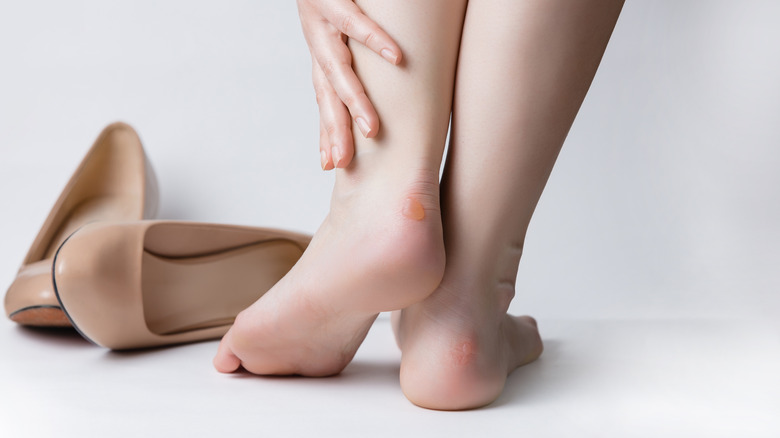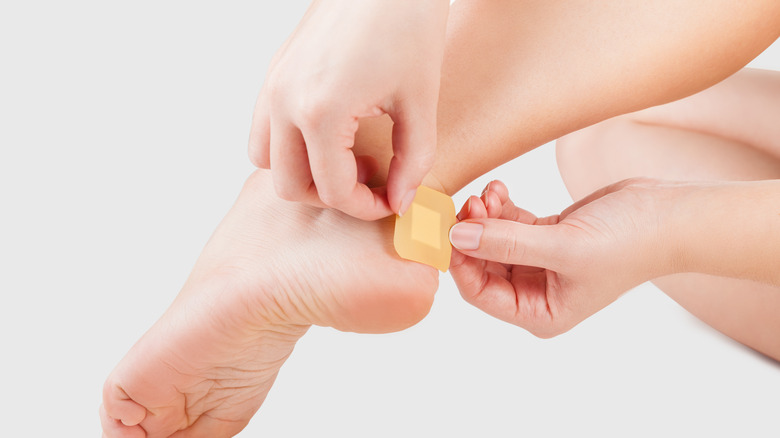The Only Time You Should Pop Your Blister
Although blisters can be painful and uncomfortable, most dermatologists advise against popping them. Blisters are bubbles of fluid that form on the skin in response to skin damage (via Insider). They act as a bandage or barrier to the injured skin beneath them, protecting against any further damage. And thankfully, they often resolve on their own. Blisters are actually a sterile environment, so popping them can actually create an opening for germs and bacteria.
However, blisters that are the result of friction or a mild burn are generally safe to pop. Burn blisters can be a result of sunburn, whereas friction blisters usually form from wearing ill-fitting shoes. Blisters caused by an infection, however, should absolutely be left alone. Infected blisters, or fever blisters, are red and filled with pus. Popping an infected blister could make the condition worse. If you're unsure of the cause of your blister, call your doctor and refrain from popping it.
When and how to safely pop a blister
Although blisters tend to take care of themselves, there is one time when you should take matters into your own hands. "In some cases, popping a blister can prevent it from rupturing under less-than-sanitary conditions," per Healthline. And if you must pop a blister, there are some steps you can take to minimize the risk of infection.
First, wash both your hands and the blister. This will help prevent any germs or bacteria from entering. You can clean the outside of the blister with antiseptic wash or alcohol and wash your hands with soap and water. After you're done cleansing your hands and the blister, you can proceed to pop it (via Healthline).
You should use a sterile tool, like a needle. If your needle isn't already sterile, you can soak it in alcohol for 20 seconds. Then, use the needle to puncture your blister, poking at least three holes around the edges. This will help drain the fluid. After it's finished draining, apply a thin layer of petroleum jelly and cover it with either a bandage or gauze. You'll need to change the dressing every day until it's fully healed, according to Healthline. If your blister becomes infected or any other complications arise, you should contact your doctor immediately.


